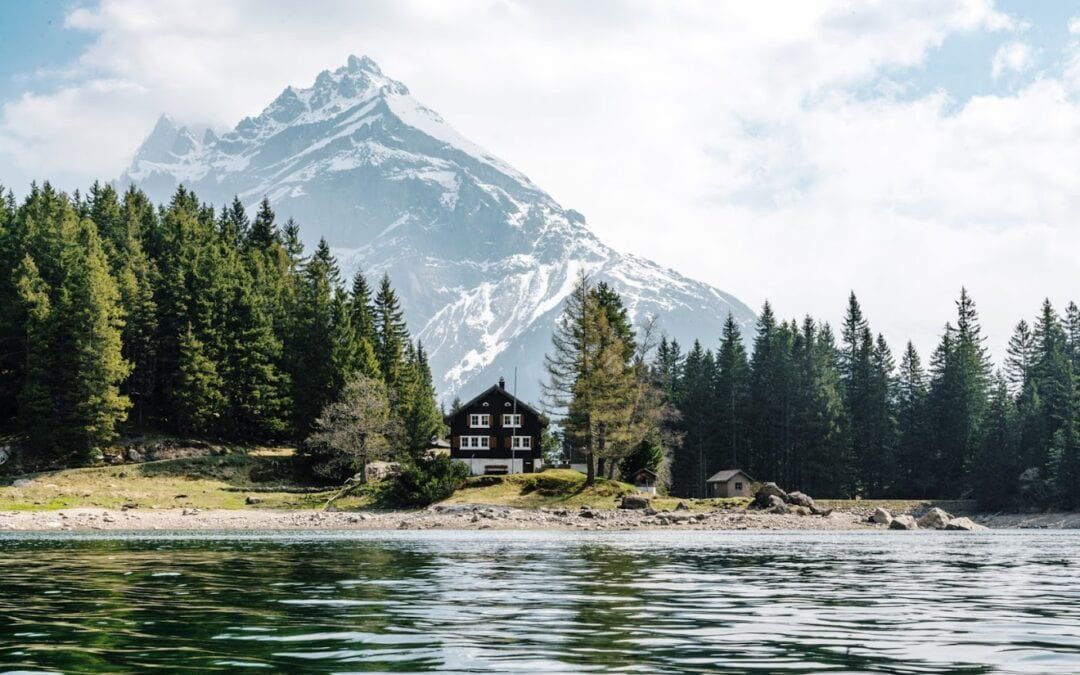Call Now for a fast FREE Quote!
Second Property? How to Handle House Insurance

You may own a second home for various reasons. Unless you’re paying for a separate house for a grandparent or otherwise have people living there year-round, though, you’ll have to adjust your insurance policies to account for the home’s vacancy. Today, let’s look at the reasons you might need a second policy for your second home.
Why Second Home Insurance
Insurance companies have no problem with homeowners, but the liabilities go up for a house you won’t use consistently throughout the year. With no one on the scene at any given time, response to emergencies like fires or thefts can undergo a significant delay. Even things that might be a minor situation in a primary residence, like a flood or burst pipe, could cause major problems for both you and your insurance company.
Some of the factors that you may look for in a vacation home, like a remote location, a nearby body of water, or a mountaintop view, might be the very things that require special policies. Reclusive spots often mean that there’s no law enforcement or fire safety nearby, while the beautiful river, lake, or coastline can provide the perfect scenario for flood damage and rot. Before you purchase a vacation home, you will need to take a look at your finances to see if you can handle this responsibility, for example, if you have a timeshare that is draining your finances, you may want to look into some timeshare exit companies to offload this and help you build your money up again for the purchase of your vacation home. Having other lines of ‘holiday finance’ going out of your account can stop you from looking after your vacation home.
What You Need to Cover Personally
Because of all the perils that might go along with your vacation home, you’ll need to find an insurance company that will work with you to cover any possible damages. The riskier your purchase, the less likely you are to find a company that’s willing to work with you, so evaluate a few of these factors before you decide to purchase:
- Building materials – if your home uses risky materials, you’re less likely to find coverage. Consider the area you’re building in, and choose your supplies based on what will stand up to the elements.
- Exact location – If your vacation house is in a spot that gets a lot of claims due to environmental hazards or natural disasters, you’ll wind up paying high premiums even if you never have to submit a claim yourself.
- Safety measures – Some insurance companies will cut down your rates if you take precautions to keep your property safe. You’ll be less likely to file a claim if you install fire safety, burglar alarms, and deadbolt locks.
An additional tip about protecting your property: whether you are likely to get insurance reductions for the same or not, it is always in your best interests to research the necessary safety systems and get them installed as soon as you own the property. Look for service providers similar to Baltimore Locksmith (https://www.locksmithbaltimorearea.com/) in your area and have them provide you options for maximum safety. The same holds for any other systems you want to have installed, such as fire and smoke, for example.
What Coverage Your Short-Term Rental Needs
If you share your vacation home with another family or rent it out as a short-term rental, your needs will change once again. According to the company, the more people who use the home, the more likely someone will cause a problem that you will have to remedy. Short-term rentals could fall under various scenarios, including:
- Policy extensions – the homeowner’s policy extends to a short-term rental if you notify your company.
- Additional benefit – a rider or supplementary policy goes into place to cover a short-term rental.
- Commercial coverage – the company treats your short-term rental as a business, which requires commercial coverage instead of homeowner’s insurance.
Moreover, if you are renting out your vacation home for a short period, you can hire an agent for property management and take care of all the renting procedures. You can check out a few lettings agents near your property or through the internet. They can assist both landlords and tenants as well as deal with property damage and repair issues.
How to Save on Second Home Coverage
If you’re concerned about the insurance risks and prices, you’ll want to take every opportunity to save on your policies. That includes:
- Comparing rates – be sure to shop around before deciding on your insurer.
- Asking about bundles and deals – some of these can lower your premium.
- Increasing your deductible – this will hold you responsible for a higher cost if anything does happen, but lets you pay less in the meantime.
- Adjusting your coverage – do this every so often depending on your actual circumstances, not projections.
For non-standard home insurance or any other insurance needs, you’ll find every kind of coverage you need with Metropolitan Insurance Service Consultants, Inc. We’ve been in business for over 30 years, serving anyone who needs insurance and building a reputation for reliability, integrity, and fantastic customer service. Contact us today to get all the coverage you’ll need.
5550 North Elston Ave.
Chicago, IL. 60630







